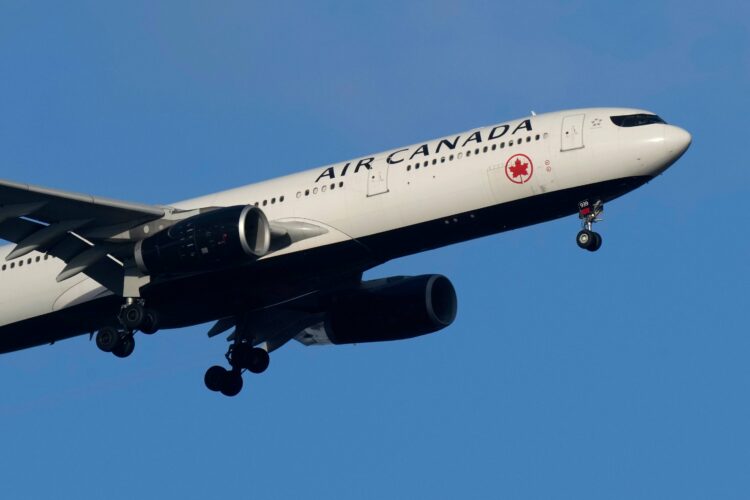A small claims court ruling on Wednesday found Air Canada liable for incorrect information provided by its website’s customer service chatbot, a possible landmark decision in the expansion of artificial intelligence (AI) in the corporate world. In its ultimately unsuccessful defense, however, the airline may have set an entirely different legal precedent by arguing that the AI is “responsible for its own actions.”
The controversy at the intersection of AI autonomy and a relatively minor customer service complaint arose in November 2022, when Vancouver resident Jake Moffat attempted to book a last-minute flight to attend his grandmother’s funeral in Ontario. As reported by CBC, Air Canada’s interactive website chat bot assured him that he would be able to purchase full-price tickets upfront for a total of $1,630 (CAD), and then apply for a reduced “bereavement fare” rate within 90 days. However, according to the airline itself, no such refund policy ever existed—and had, in fact, been made up by the AI. Moffat’s request for retroactive reimbursement was denied. Instead, he was offered a $200 flight voucher and a promise that the bot would be updated to prevent “misleading” statements in the future.
Learn the benefits of becoming a Valuetainment Member and subscribe today!
In response, Moffat brought a case against Air Canada in small claims court in February 2023, providing screenshots of his conversation with the AI as evidence. The airline countered with the novel defense that the online tool is a “separate legal entity responsible for its own actions,” according to legal filings, further stating that the correct policy was clearly presented elsewhere on the site. Despite the significant implications of the airline’s argument, the Canadian Civil Resolution Tribunal ultimately found the argument unconvincing.
“This is a remarkable submission,” CRT member Christopher Rivers wrote in the tribunal decision. “While a chatbot has an interactive component, it is still just a part of Air Canada’s website. It should be obvious to Air Canada that it is responsible for all the information on its website. It makes no difference whether the information comes from a static page or a chatbot.”
Related: Artificial Intelligence Concerns are Growing for Americans
Rivers ordered the airline to pay Moffat a total of $812 (CAD)—the difference between the normal fare and the bereavement rate—and $93 in court fees in light of the company’s failure to “take reasonable care to ensure its chatbot was accurate.”
As of Monday, the AI chat feature on Air Canada’s website appears to have been disabled. The company has not disclosed plans for updating the system or discussed whether the chatbot will still be treated like an autonomous entity in the future.
Connor Walcott is a staff writer for Valuetainment.com. Follow Connor on X and look for him on VT’s “The Unusual Suspects.”



















Add comment